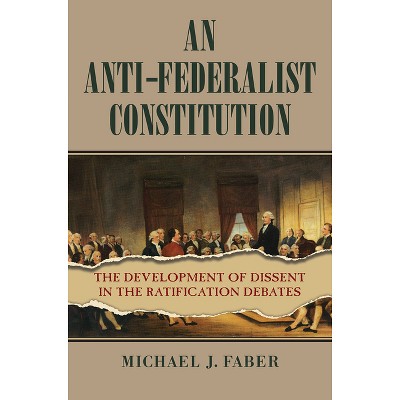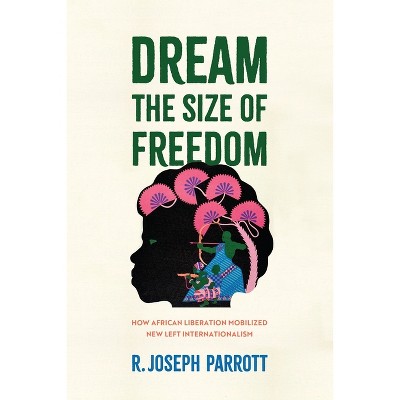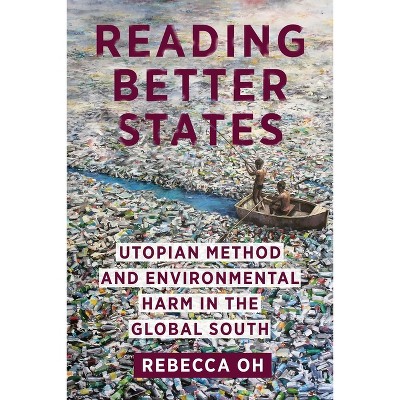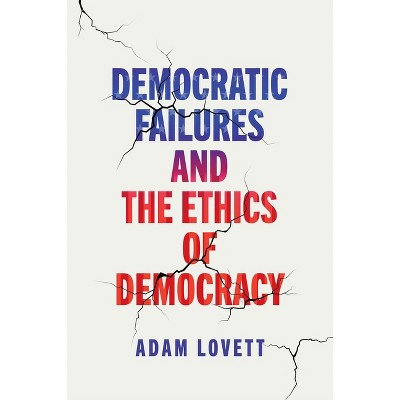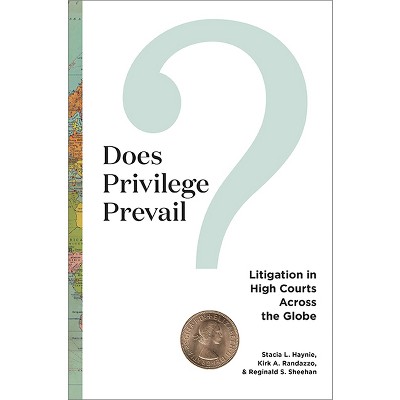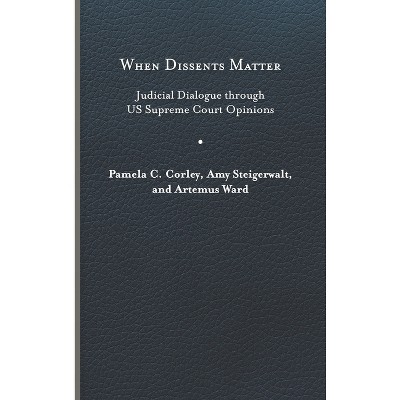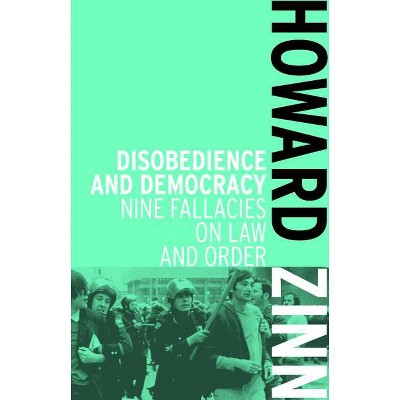Sponsored

Property Disobedience as Protest - (Democracy, Citizenship, and Constitutionalism) by William E Scheuerman (Hardcover)
$49.95
Pre-order
Eligible for registries and wish lists
Sponsored
About this item
Highlights
- William E. Scheuerman's book explores when, if ever, politically motivated property harms are justifiable In 2020, Black Lives Matter activists toppled Confederate monuments and occasionally vandalized police vehicles and stations.
- About the Author: William E. Scheuerman is the James H. Rudy Professor of Political Science at Indiana University.
- 240 Pages
- Philosophy, Political
- Series Name: Democracy, Citizenship, and Constitutionalism
Description
About the Book
"Property damage constitutes a commonplace feature of global political protest. How then to evaluate it? Pushing back against the tendency to conflate it with political violence, Scheuerman grapples with the question of when, if ever, politically motivated property harms are justifiable, drawing on a wide range of timely real-world examples"-- Provided by publisher.Book Synopsis
William E. Scheuerman's book explores when, if ever, politically motivated property harms are justifiable
In 2020, Black Lives Matter activists toppled Confederate monuments and occasionally vandalized police vehicles and stations. Climate activists have damaged natural gas pipelines and famous artworks. In Hong Kong, pro-democracy students targeted businesses sympathetic to the mainland government. On January 6, 2021, far-right groups at the US Capitol mistreated public and private property as part of their efforts to disrupt finalizing election results. Property damage constitutes an increasingly commonplace feature of global political protest. How then to interpret and evaluate its proliferation? The media regularly describes such acts as "violent," as do most scholars. However, William E. Scheuerman's book pushes back against conflating politically motivated violations of property rights with violence. Political violence has no place in democratic politics. Yet indiscriminately grouping property damage together with acts destructive of and harmful to persons is conceptually confusing and politically misleading. After all, Americans celebrate the Boston Tea Party. So why do most of us now categorically condemn many seemingly parallel acts? Scheuerman tackles challenging and politically timely questions. When, if ever, are politically motivated property harms justifiable? What standards should we expect of those pursuing them to meet, under democratic conditions? How are those standards undermined by the rise of authoritarian populism around the world? Focusing on identifiably nonviolent varieties of what Scheuerman calls property disobedience, his book explores a variety of real-life examples, both past and present, to understand how and why such acts may be politically justifiable--or should instead be viewed as beyond the pale.Review Quotes
"Against the common view that property damage is inherently violent, William E. Scheuerman offers a compelling, original, and timely account of 'property disobedience' that aligns with political nonviolence."-- "Candice Delmas, Northeastern University"
"In a turbulent age of deepening social unrest and rising political repression, William E. Scheuerman dares to say the unsayable: while violence against people is always in principle antithetical to democracy, some types of property disobedience--corporate 'takedowns, ' campus occupations, toppling public monuments, and sabotaging arms factories--may well serve to rekindle and strengthen its spirit and substance. A brilliant book by a brilliant political thinker whose analytic sophistication and political humility show why in these difficult times thinking imaginatively about democracy is so vital for securing its future."-- "John Keane, University of Sydney, author of The Life and Death of Democracy"
About the Author
William E. Scheuerman is the James H. Rudy Professor of Political Science at Indiana University. He is author of several books, most recently, The End of Law: Carl Schmitt in the Twenty-First Century and Civil Disobedience.Dimensions (Overall): 9.0 Inches (H) x 6.0 Inches (W) x .69 Inches (D)
Weight: 1.08 Pounds
Suggested Age: 22 Years and Up
Number of Pages: 240
Genre: Philosophy
Sub-Genre: Political
Series Title: Democracy, Citizenship, and Constitutionalism
Publisher: University of Pennsylvania Press
Format: Hardcover
Author: William E Scheuerman
Language: English
Street Date: January 6, 2026
TCIN: 1001913622
UPC: 9781512828672
Item Number (DPCI): 247-05-2025
Origin: Made in the USA or Imported
If the item details aren’t accurate or complete, we want to know about it.
Shipping details
Estimated ship dimensions: 0.69 inches length x 6 inches width x 9 inches height
Estimated ship weight: 1.08 pounds
We regret that this item cannot be shipped to PO Boxes.
This item cannot be shipped to the following locations: American Samoa (see also separate entry under AS), Guam (see also separate entry under GU), Northern Mariana Islands, Puerto Rico (see also separate entry under PR), United States Minor Outlying Islands, Virgin Islands, U.S., APO/FPO
Return details
This item can be returned to any Target store or Target.com.
This item must be returned within 90 days of the date it was purchased in store, shipped, delivered by a Shipt shopper, or made ready for pickup.
See the return policy for complete information.
Trending Book Pre-Orders

$19.99 - $20.58
MSRP $19.99 - $30.00
5 out of 5 stars with 6 ratings

$10.19 - $23.09
MSRP $15.99 - $32.99
4.6 out of 5 stars with 77 ratings






